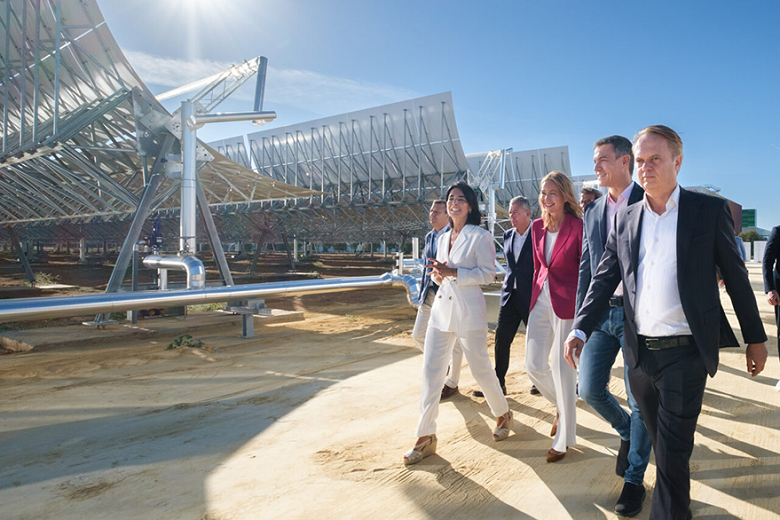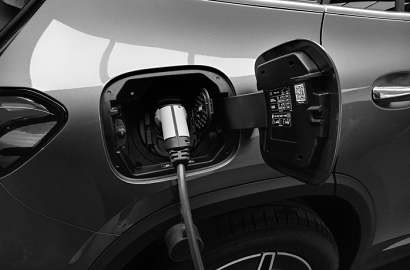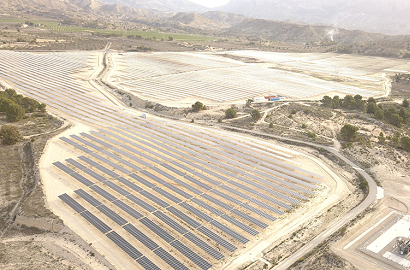Heineken opens Europe's largest solar thermal plant in Seville

It represents an investment of 21 million euros in a public-private partnership project
Heineken España has opened Europe's largest industrial solar thermal plant in Seville. Built by Engie España, it stands on an eight-hectare site next to the brewery, which it will supply. With an output of 30 megawatts and a storage capacity of 68 megawatt-hours, it will cut fossil gas consumption at these facilities by over 60%.
This is the first time that thermodynamic concepts and CSP (concentrated solar power) technology have been combined in one plant. The production of hot water for industrial use is thereby doubled, and by using the water itself as the heat transfer fluid, the use of fuel oil that could be harmful to the environment in the event of a spill is thus avoided.
Renewable energy
The construction of the solar thermal plant was completed in just twelve months, almost half the time initially envisaged. The project cost 21 million euros, and was financed through a public-private partnership model. It was co-funded by the European Regional Development Fund (FEDER) and managed by the Institute for Diversification and Saving of Energy (IDAE).
Under its agreement with Engie España, the land has been leased to the Dutch company, who will pay for the energy consumed, while the French energy firm undertakes to provide fully renewable energy at an agreed price. In twenty years' time, the plant will become the sole property of Heineken.
The road to sustainability
There is still work to be done, but the investment of more than 30 million euros over the past two years, which included the Seville plant, has helped Heineken España to come closer to achieving its sustainability objectives, as the brewery explained at a conference organised specifically to share its commitments and achievements with sustainability experts, partners, suppliers and employees.
Eighteen months ago, the Dutch company presented its plan for sustainability up to 2025. One of the challenges was to bring the carbon footprint of its production operations down to zero. By the end of this year, carbon emissions will have been cut by 50%, thanks to the solar thermal plants at the Seville and Valencia factories, the photovoltaic plant in El Andevalo (Huelva), the biomass boiler in Jaen and the production of biogas at these four facilities. This percentage will rise to 62% next year, when the two solar thermal plants are running at full capacity.
Fertiliser pilot project
Another of the challenges the company set itself was to reduce emissions by 30% across its value chain. In 2023, the aim is to close the year by achieving a 24% reduction, a task that will involve suppliers, employees and customers. A pilot project has been set up, for example, to promote low-carbon fertilisers, in collaboration with Fertiberia and as part of the European FertigHy consortium.
For the hotel and catering industry, a pioneering last-mile logistics system using electric vehicles is being rolled out. This is already up and running in Seville and Malaga, and other pilot schemes are currently underway in Madrid, Sitges, Bilbao, Cadiz and Cordoba. More than 273,000 energy efficient coolers have also been distributed in bars and restaurants.
Water consumption
Water is also an important challenge for a brewing company, and Heineken aims to reduce its consumption to 2.6 litres per litre of beer. In the last two years, water consumption at its factories has been reduced by 90 million litres, and the Seville factory has already reached the target set for 2025. Moreover, the company is developing projects in wetlands such as Doñana, La Albufera in Valencia and on the banks of the Jarama River in order to return the water contained in its beers - a total of 1,900 million litres per year - to the environment.
Another concern in terms of sustainability is the recovery of the waste generated by the breweries. At present, more than 220,000 tonnes per year are being turned into new products such as animal feed and beer vinegar. Thanks to this initiative, the Jaen, Seville and Madrid plants are already “Zero Waste to Landfill” certified, and the one in Valencia expects to join them in gaining certification by the end of this year. Furthermore, the virgin plastic the company uses in the packaging of its by-products is being replaced by recycled plastic, which will account for 70% by 2024.
Photo: Heineken España




